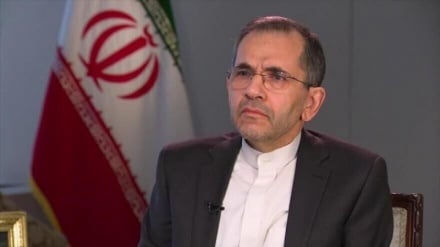Review of Israel's crimes in the Jenin Refugee Camp in Palestine in 2002 / Observations of an American university professor + Images
-
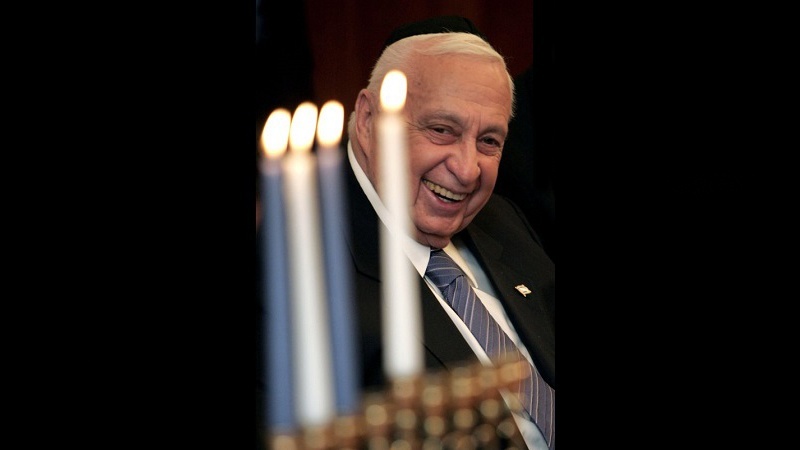
Ariel Sharon, Prime Minister of the Zionist regime from March 2001 until April 2006
Pars Today - In late March 2002, the Israeli regime's army, on the orders of its infamous and hated Prime Minister Ariel Sharon, carried out a massive military invasion of Palestinian territory. This attack was the largest military operation in these lands since 1967; the Israeli regime's army invaded Ramallah, Tulkarm, Qalqilya, Nablus, Bethlehem and Jenin.
The purpose was for the Zionists to control the important population centers of the West Bank. From April 3 to April 17, 2002, the Israeli regime's army, on the orders of Sharon, invaded the Jenin refugee camp.
The Israeli regime's army forces, with 150 tanks, armored vehicles, combat helicopters, and F-16 fighter jets, along with 2 infantry battalions, commando teams and 12 armored bulldozers, crushed this refugee camp in a fierce urban battle. In this battle, 52 Palestinians were martyred and 23 Zionist soldiers were killed. According to a report by the UN Human Rights Watch, 22 of the 52 Palestinian martyrs were civilians.
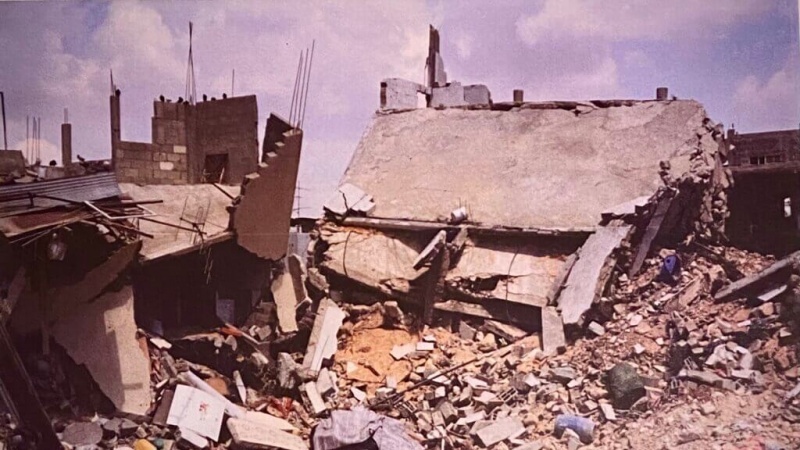
The Amnesty International report on this massacre states: "During this war, Palestinian residents, Palestinian and foreign journalists and others outside the camp witnessed hundreds of rockets being fired at the camp's homes from the attacking combat helicopters. The sight of the bombardment of the Jenin refugee camp convinced the witnesses of these air strikes, including military experts and the media, that many Palestinians had been killed. The tight siege around the refugee camp and its main hospital from April 4 to April 17 meant that the outside world had no means of knowing what was happening inside the camp..."
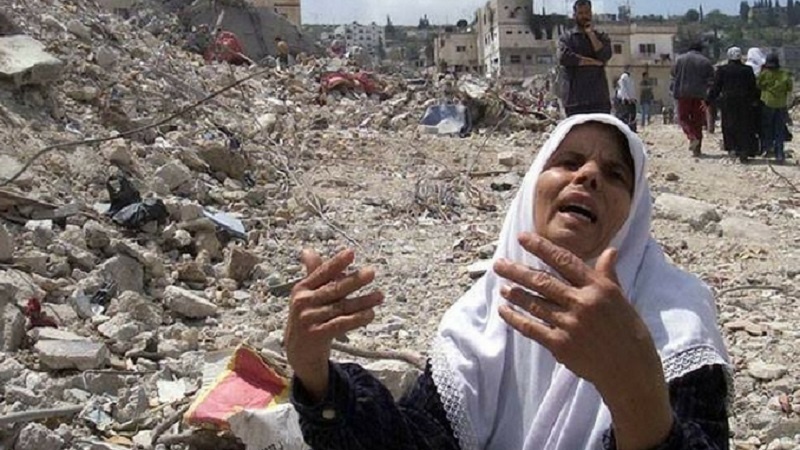
Amnesty International also documents other cases in this report: killings, use of Palestinians as human shields, torture and cruel, inhuman or degrading treatment of detainees; lack of access to food and water; prevention of medical and humanitarian aid; and widespread destruction of property and urban infrastructure.
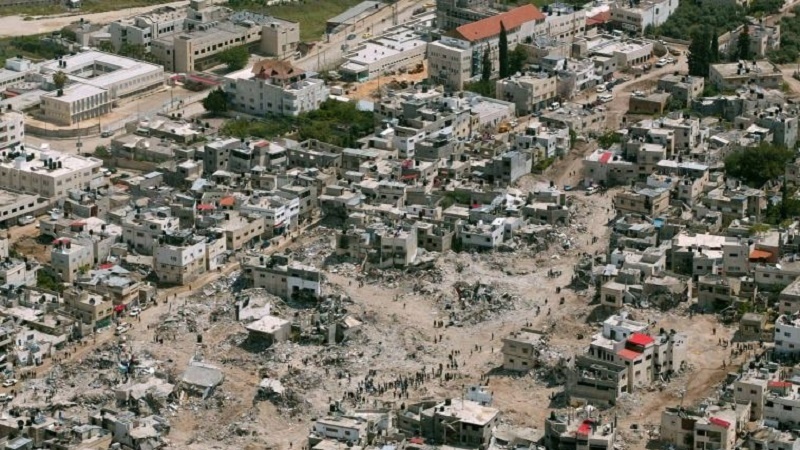
Jennifer Loewenstein, a university professor, political activist and independent journalist, who was sent to that camp in the spring of 2002 by a human rights center, writes in her report, referring to this issue and the media's indifference to this massacre:
“At first, I didn’t know if I was in the right place. Before me was a landscape of ruin. I remember asking an old man where the camp was. He gave me a look, gestured toward the wreckage and said, “al-mukhayim!” (“the camp!”) That’s when it hit me just how devastating the destruction had been. I wandered from heap to heap of debris often not even knowing what I was seeing. The ground was muddy and there were people, including women and children, trying to salvage personal property, clear pathways around the fallen buildings for emergency medical teams, and locate the dead.”
The smell of death was everywhere in the camp. I had heard people speaking of "the terrible smell of death", but I had never experienced such a thing before. I went away from the crowd and went up a platform looming over the yard in the back of the hospital. Over there, the personnel used to wrap the dead in white sheets and leave them on the ground in the sun. Behind this row of the dead, graves were dug hastily so that the dead bodies would not cause disease.
Although the perpetrators of this disaster didn't want anyone to film what the bulldozers, weapons and bombs had created, but I and a few foreign journalists saw the effects of this disaster. Obviously, the aggressors didn't like the foreigners to know that electricity, water, food and medical equipment were not provided and no one is allowed to enter or exit. They didn't want anyone to know how the soldiers had burnt family photos, urinated and defecated in the pots and pans of Palestinians' kitchen, torn up children's toys, and when everything was finished, a group of them had laughed in revelry and eaten ice-cream.
The aid and relief organizations couldn't send any humanitarian cargo for the residents under siege. No video was recorded from the camp's hospital and its injured. No film was taken from the bombed buildings and a commentator who couldn't control his tears in front of the camera. There was no picture of the children who were clinging to their mothers out of fear. On the contrary, the Zionists were sympathized. This excessive absurdity dominated when the media giants descended in Jerusalem and Tel Aviv to shake hands and sympathize with the perpetrators of the disaster.
Jenin has been forgotten. This incident dates back to 20 years ago and since then much more horrible operations have happened in Gaza. Thus, reminding of such disasters have become much more essential because the great global resistance against global colonialism starts with memory and reminding.
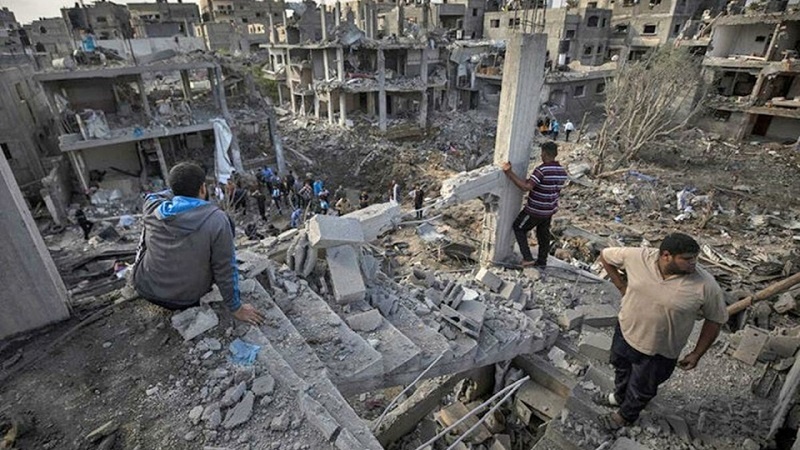
Keeping in mind causes motive and equips the global discontent. If the news media, due to following their governments, fail in their duty of surveillance on the centers of power, it will be the responsibility of each of us humans to compensate their failure. Finally, Jenin has become a symbol of the forgotten battles. Reminding Jenin or any other forgotten crime is a kind of resistance: confrontation with the past and the will to change the present. This is the first step for a popular action and a hope in the future.
MG-RM/UR
